Embracing the farm to table movement.
A trip to Scotland showed me how foodies, farmers and chefs can make dents in the universe.
“We’re here to make a dent in the universe. Otherwise, why be here at all.”, said Steve Jobs.
It’s a fair point. I mean, who doesn’t want to move the universe’s needle by doing something good. And making a dent in the food universe feels like a worthwhile denting proposition.
Traveling through Scotland, I saw, in a new light, the obvious and stunning consequences of natural, earth-friendly farming practices and delicious, healthy food. It’s the connection at the heart of the farm to table movement. For me, seeing that connection produced a gob-smacking, lightbulb flashing moment that I can’t forget.
While farm to table restaurants sometimes feel a little pretentious, in Scotland I had opportunities to dig a little deeper on the topic (pun intended!). What I found were farmers committed to growing food in a way that gives back to the air and the soil and chefs committed to making food that is nutritious and delicious. I’ve had hints of these practices at various Farmers’ Markets and chef-driven restaurants I’ve visited in places like Boston and Miami, but in the urban environment, it’s different. I might see and taste the fresh produce and small batch jams and honey, but I don’t get to experience and viscerally understand where it all comes from.
In Scotland I had the opportunity to experience the entire circle of goodness that is the farm to table movement.
It started at Free Company, a farm and restaurant 10 miles outside Edinburgh Scotland.
The visionary young farmers and chefs at Free Company produce food in a way that sustains the earth and both delights and nourishes the eaters. Their goal is to use everything, and I mean everything, they raise and grow in the restaurant. Very little is hauled in; very little is wasted.
The buzz word for this approach is bio-dynamic regenerative farming. The underlying philosophy, credited to Rudolf Steiner, is to establish a holistic, ecological and ethical approach to farming, food and nutrition. The philosophy is interpreted in many ways. At Free Company, everything they grow and raise goes into the food they serve. A secret to their success is respecting the link between the animals and the vegetables. For example, they raise heritage breeds of pigs, sheep and cows. The animals dig and fertilize the soil; the farm does not use big gas-eating tractors or chemical fertilizer. Carbon gets put back in the soil, which grows richer and more productive over time. The animals and vegetables support one another and the result is incredibly fresh and tasty food and drink.
Dinner at Free Company.
After a 40 minute drive from Edinburgh, I arrive at a beautiful set of barns that have been turned into a communal restaurant. Drinks and hors d’oevres are served on the patio.
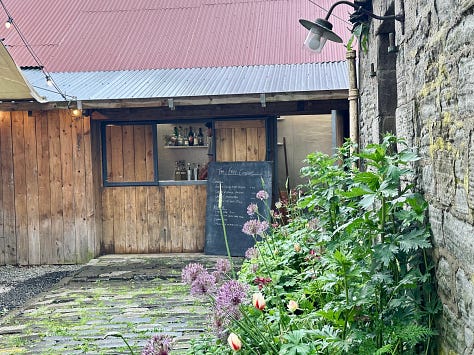
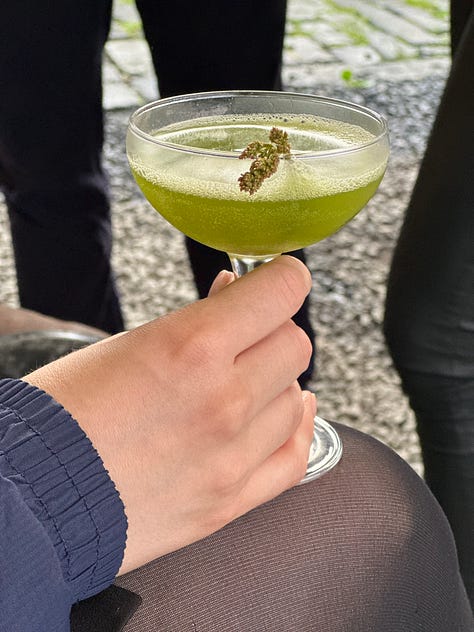

Alongside the patio, the bread is baking and the lamb is roasting in a wood fired oven. The wood, of course, is from the farm.
Inside the barn/restaurant, a long communal table is beautifully set with flowers-from-the-farm centerpieces. As we enjoy drinks and appetizers, the owner and chef introduces us to the philosophy and methodology of “circular”/regenerative farming:
The menu and food reflect the physical beauty and bounty of the farm, with an eye towards foodie tastes.
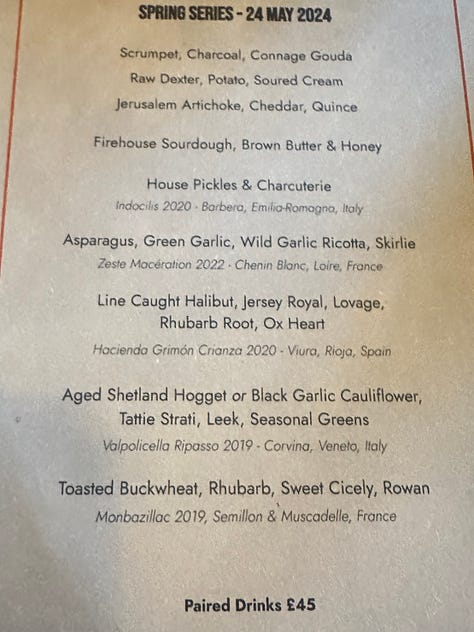


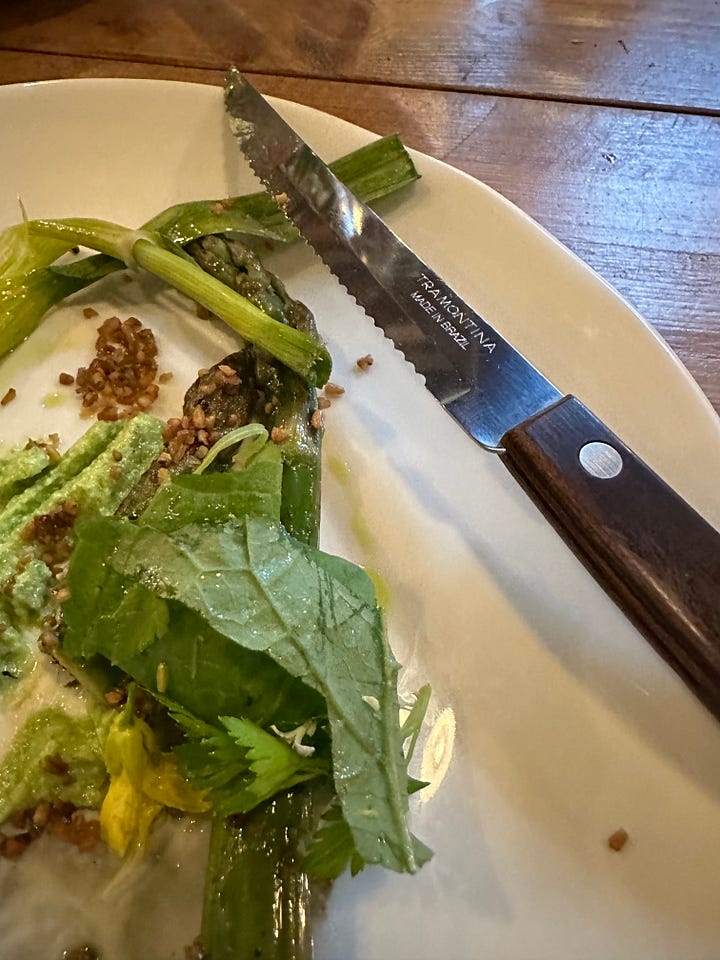
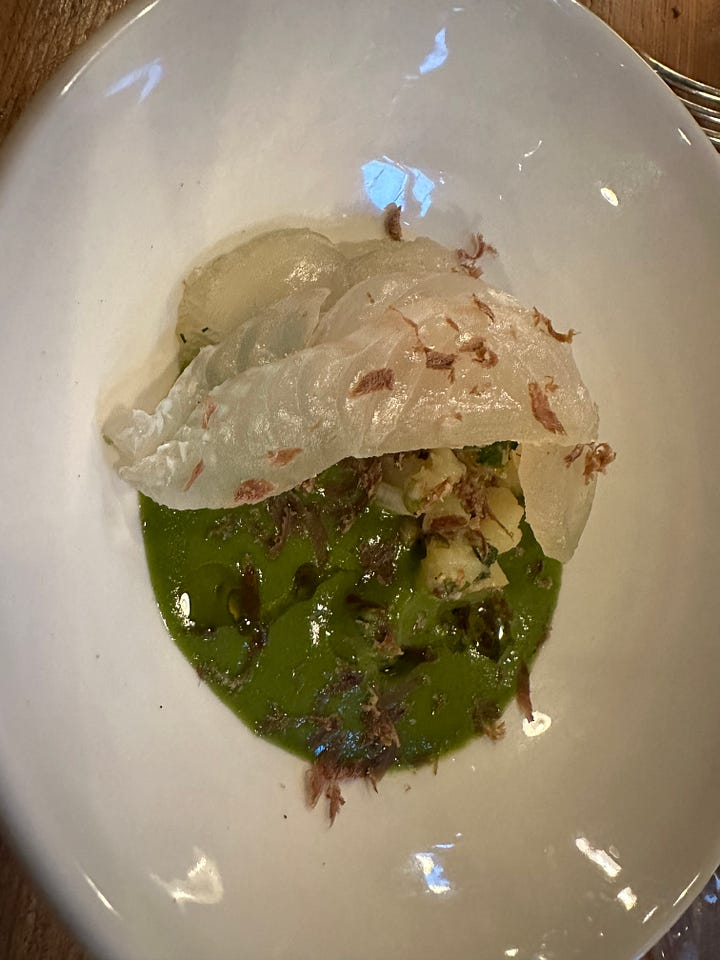
I wish all my meals could be this fresh. delicious and nutritious and grown in this sustainable way.
And the kicker to the whole experience: you are asked to pay what you think is fair. What an ethically thoughtful way to end an ethically sourced and made meal.
I walked away wanting to learn more about sustainable farming and food.
The Scottish Highlands, my next destination, took me to the heart of the farm to table experience.
The Highlands are everything I could have hoped for. Lush vistas, wam-hearted people, and an opportunity to live in a sustainably farmed countryside that produces swoon-worthy food - as well as the famous Scottish whiskey.
In the Highlands, we eat shellfish that comes from the waters we can see from the hotel window.

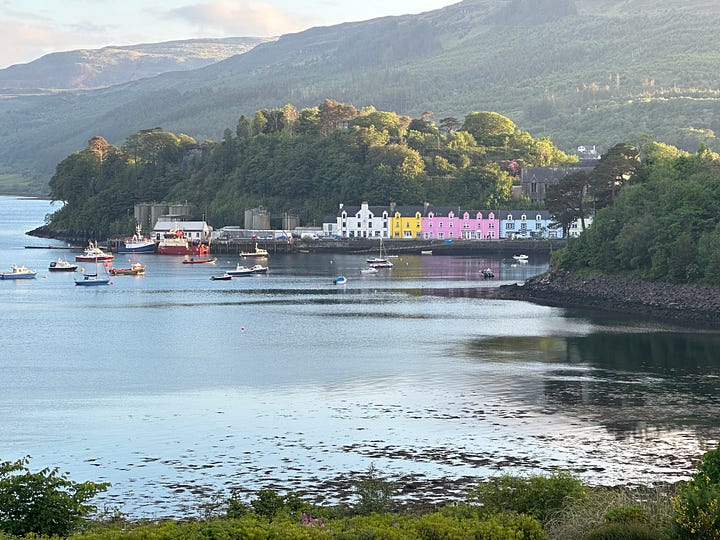
It is pulled from the water in the morning, steamed and served at a magnificent lunch of prawns, smoked salmon and tomato salad just hours later.
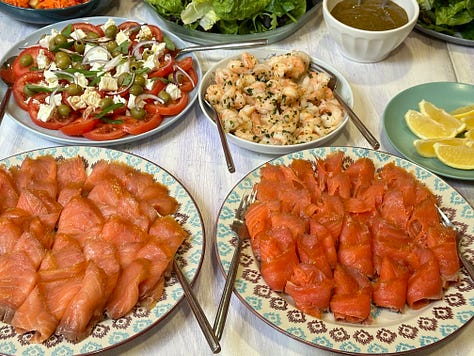
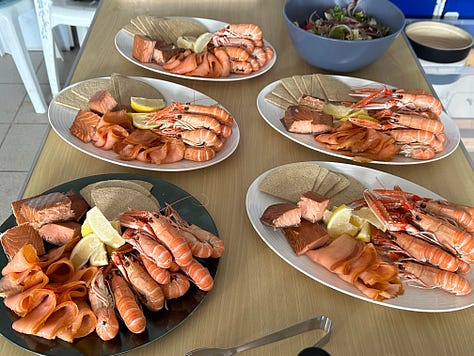
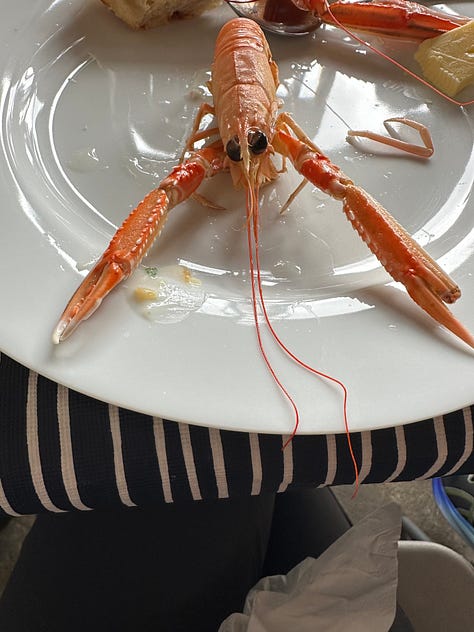
As we hike, we see sheep grazing everywhere. They nourish the soil and some must be eaten just to keep them from overwhelming the land.

In other words, the whole system feels like Hakuna Matata; there are no worries in this circle of life. It natural and simple and good. Or, as Mufasa said to Samba,
When we die, our bodies become the grass, and the antelope eat the grass. And so we are all connected in the great Circle of Life.
Seeking this experience here at home.
Growers, producers and restauranteurs are the key to this way of ethical food sourcing and eating. Alice Waters is credited with launching the farm to table movement at Chez Panisse, her eponymous Berkeley restaurant, in 1971. And the movement continues to spread. Farmers markets all over the country support small growers and food producers and makers who are conscious about the earth as well as making a profit. Even big grocers like Whole Foods and Trader Joes try to support these movements. Chefs love to buy from these suppliers.
But these wholesome initiatives get smothered in the land of big agriculture and big box stores. Huge companies control so much of the food we buy and eat and how much we pay for it.
“Big Ag” provides widely available food, at prices most people can afford for sure. At the same time, it is a huge and powerful industry, driven by the principles of efficiency and profitability. It gorges on fossil fuel and water, and eats up topsoil. The chemicals and gas and animals pollute our air and water. The farming efficiencies deplete soil, diminish biodiversity and contribute to the death of underwater life, from fish to coral reefs. 1
So a question for you:
All of these contradictions and experiences make me wonder how to make a dent in the food universe. I’m wondering how to make this movement more scalable, more sustainable, more important to more people.
Do you have any thoughts, reactions or ideas to share? If so, please leave them in the comment section below!
And if you ever go to Scotland, here are some recommended places to eat delicious food growth and produced ethically.
Free Company
restaurant@the-free-company.com
Cockdurno Farmhouse
Balerno, Edinburgh, Scotland EH147HZ
07779 035175
Sorrybreac
7 Bosville Terrace, Portree
Isle of Skye, IV51 9DG
+44 (0) 1478612069
USDA, Economic Research Service using data from U.S. Department of Commerce,Bureau of Economic Analysis, Value Added by Industry, March 28, 2024 release.


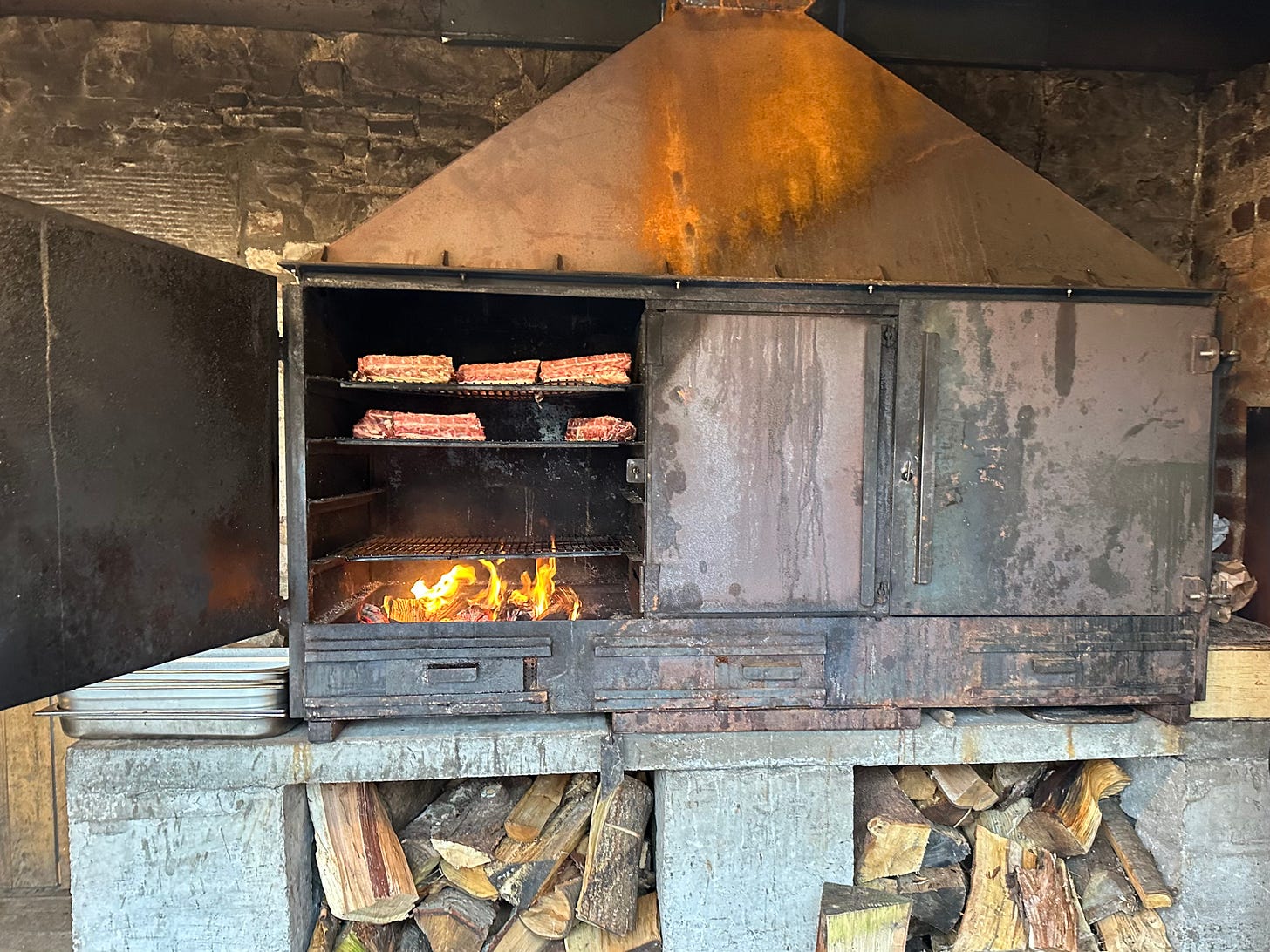

Gorgeous and such important work! Your article inspires me to go. I am trying to eat less and less food from the US agriculture system. It’s scary how it is ruining human health and the planet. Have you watched Clarkson’s Farm on Amazon? It’s a fascinating inside look at UK farming.
Great info and writing, Anne!